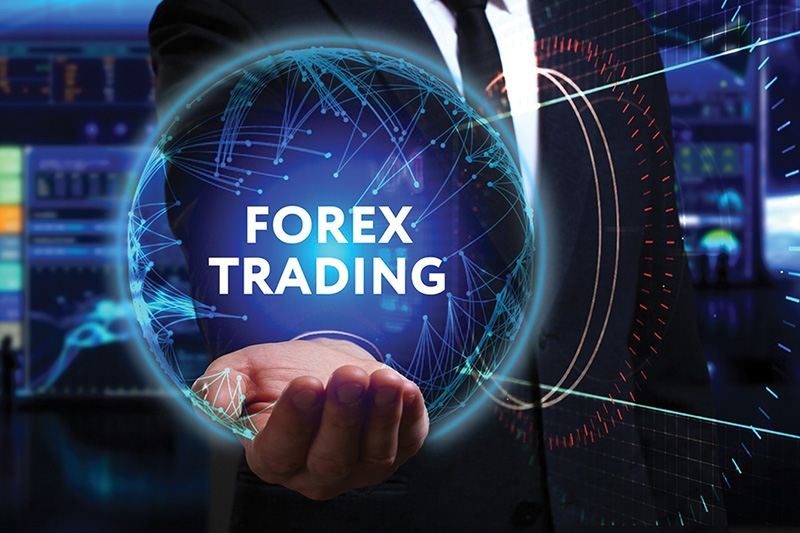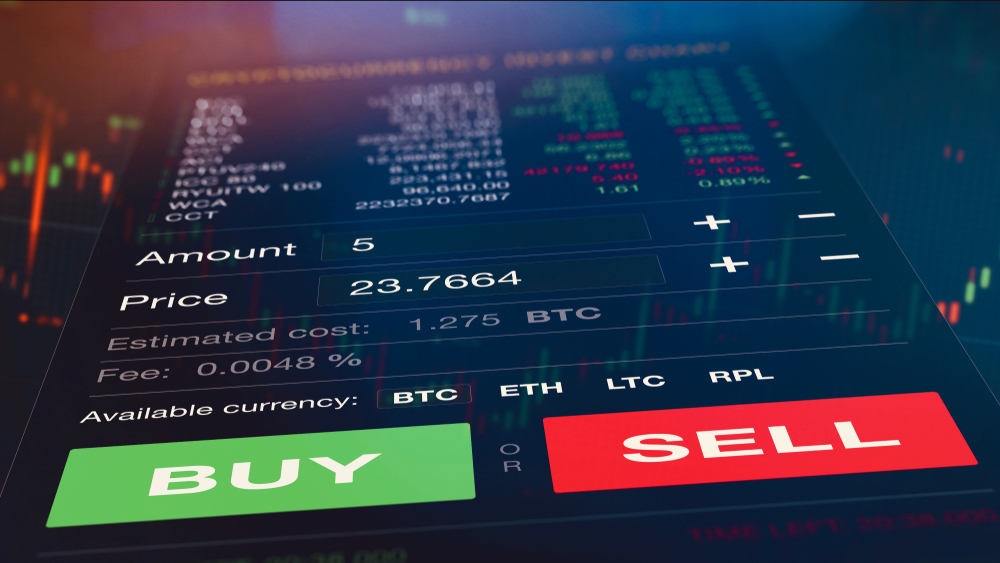High-risk forex scams spook investors
 |
| The often high leverage in forex trading is both a blessing and curse, enabling either high profits or immense losses |
Falling for gimmicks such as AI, matrix algorithms, or promises of more than 30 per cent profit per month, many investors have been withdrawing their capital to channel in foreign exchange (forex) investments.
Along with forex moves, new models of investment have been wooing the attention of investors recently, in the form of a hybrid of forex, cryptocurrency, and various forms of multi-level marketing (MLM). They promise to bring tremendous profits with their allegedly top-notch, world-class business models. Investor Nguyen Thanh Hai said that he had just been invited by a friend to open an account at Emas Fintech for a lucrative profit of 2-4 per cent per day, and 30 per cent per month. In addition, investors could also reap the benefits of other commissions, which are sometimes higher than the trading interest.
Rumour has it that Emas Fintech is the only trading model in the world where cryptocurrency and real money collide. They make profit by trading between virtual currencies, similar to forex trading.
The firm insists it boasts a smart paring-based matrix algorithm, with probability of loss said to be almost zero. Besides that, a handful of packages are introduced to entice investors. For example, when pouring money into the basic package, which would cost between $500 and $4,500, investors are entitled to 50 per cent of trading profits. On the other hand, if investors bet big on the premium package, which sets back $10,000, a spectacular 70 per cent of trading profits could be gained.
The remainder is split between brokers (15 per cent) and companies (15-35 per cent). In short, the more the merrier – the bigger the investment, the more commission someone can get.
However the actual transaction interest, as well as its promising commission, is just an act of fabrication. Experts pointed out that brokers cannot guarantee high profits or money back if all transactions are conducted via internet, with payment made on a voluntary basis.
Senior economist Nguyen Tri Hieu cautioned, “Hardly anyone can stand a chance of gaining 2-4 per cent daily interest without much effort. If these firms are so confident in their success, they would face no obstacles in raising funds from high-profile investors, let alone enticing small investors online.”
Algorithms count for little
Along with Emas Fintech, recently a flood of forex trading companies have been increasing their footprint in Vietnam, luring a number of customers. These primarily employ the model of forex investment combined with MLM.
Finance lecturer Huy Doan from the School of Business and Management at RMIT Vietnam told VIR, “In the last few years, a number of unscrupulous operators in these markets have expanded their customer networks through social media marketing and guaranteed profits to potential investors without a solid financial knowledge. They even provide testimonials from people who claimed to earn a fortune from trading with them or vouched for their long experience and trading abilities.”
He also drew an example of a popular method in which the firm offers an advanced system to identify the correct timing of currency trading, either through professional recommendations or AI. To make it supposedly more promising, it introduces a complex trading algorithm to generate automatic trades that earn money while investors sleep. To earn money, it is claimed the unsuspecting trader just needs to hand over their money to the firm brokerage account for the privilege of trade recommendation. Alternatively, he or she can earn commission by encouraging their acquaintance to join the trading community.
Forex is the world’s largest, most liquid, and most active marketplace, with global daily currency turnover surging to many trillions of US dollars. Notwithstanding, leverage is commonly as high as 100:1 or more, and this “is where the double-edged sword comes in, as leverage has the potential to enlarge your profits or losses by the same magnitude,” according to Investopia.
Notably, various introductory courses in the style of “Forex 101” have mushroomed, with irresistible advertisements. Investors are persuaded to open trading accounts, deposit money, and jump on the forex bandwagon later on.
At first they could gain some profits, which will quickly turn sour because of continuous losses. This is similar to the gambler mindset where they will continue to lay out more cash to compensate until their pockets are emptied.
Hence, fraudsters can take advantage of forex’s immense potential to put a new spin on an old type of fraud.
“Last year, I started my very first deal through a friend’s recommendation. I started out small, paying $10 per day and earning $60 in return. The second week, I paid an additional $1,000 and won $1,200,” said Nguyen Ngoc Vinh, one market participant. “At that moment, I couldn’t control my urges to trade – the rewards of trading stuck to my mind all day long. I then accumulate money for a grand investment, which costs me all of my deposits and even the interest I just gained.”
Bad turned to worse for the participant, who paid an additional $2,000 to make up for previous mistakes. “The vicious cycle repeated until April this year, when the money ran out. I lost a total of VND300 million ($13,000) before pulling out of the field,” he added.
According to Vinh, brokers of the forex trading floor reaffirmed that the platform boasts plentiful opportunities with its AI trading robots and smart algorithms to analyse, predict, and trade efficiently. And while these tools might be effective in certain situations, they have yet to reach the level of reliable accuracy.
Therefore market participants, especially novice ones, can still experience considerable risks. Having a “beat the market” mindset often causes traders to trade too aggressively or go against trends, which is a sure recipe for disaster, according to expert Hieu.
In fact, according to experts, 99 per cent of forex investors lose money and end up quitting, even experienced ones. A notable example is the case of Phan Hoang Nam, director of Nobel Global. Nam lost dozens of thousands of US dollars taken from his stakeholders to invest in forex.
However, unlike cases where trustee deviate the money consigned, most forex investors deal directly with brokers. Therefore, even if a forex service involves fraud, investors cannot take the matter to court, as the laws of Vietnam do not allow individuals to invest in forex.
The fact that transactions between investors and middlemen are mainly carried out online does not help in making the matter more transparent.
 |
| In Vietnam, fraudsters can take advantage of forex’s immense potential to put a new spin on an old type of fraud |
Legal loopholes
The current bout of market turbulence has pushed investors into riskier positions, with the forex market being highly volatile and carrying substantial perils.
Betting on forex-MLM hybrids is not a new trend, but the attractiveness of the model still remains, as illustrated by the increasing number of its victims.
In the past 15 years, many forex investment companies labelled as “investment trust”, or “closed-end trust” have collapsed after raising trillions of VND or hundreds of thousands of US dollars from investors such as Golden Rock, VGX, IMMS, and Khai Thai.
Doan of RMIT also noted, “Hedge funds and well-known institutional investors, such as Renaissance Technologies and Blackrock, have paid lucrative salaries to talents in the setup of a proper trading system, therefore requiring high management fees from potential investors. So, it does not make sense if unsuspecting traders only pay around a few hundred dollars for the so-called accurate algorithmic trading.”
According to current regulations, only institutions approved by the State Bank of Vietnam are permitted to trade foreign exchange. Individual forex trading is not officially legal, so individual investors cannot be protected by laws. In some cases, these investors are liable to a fine of VND50-100 million ($2,170-4,350).
Insiders said forex trading is continuing to gain ground, partly because the legal framework has not been completed yet, paving the way for fraudsters. At the click of a button, people could be trading with hundreds of currency pairings and thus, trading has never been easier to access.
Because forex transactions mainly take place online, it is deemed to be intrinsic for local authorities to regulate. Experts suggest that cooperation with banks could be a means to crack the whip. For instance, most investors on forex exchanges often use bank accounts of prominent lenders such as Vietcombank or VietinBank.
Phan Dung Khanh, investment director at Maybank Kim Eng Securities, noted, “There are many unscrupulous people who try to catch individual investors’ eyes by their guarantees, such as sky-high profits. But the only free cheese is in the mouse trap. Swindlers will try to exploit your optimism, your fears, and your lack of knowledge.”
| According to Huy Doan, finance lecturer from the School of Business and Management at RMIT Vietnam, investors should keep in mind the following warning signs: - Claims of guaranteed profits. If this was the case, the scammers would not need to find you, but be pursued by well-known institutional investors. - Social media marketing with images associated with luxury. - Trading signals come through text messages. In fact the scammers can bet against you and the more convenient you feel in trading, the more likely you are trapped. - No allowance to withdraw money in some circumstances, especially in the volatile market after an economic announcement. |
What the stars mean:
★ Poor ★ ★ Promising ★★★ Good ★★★★ Very good ★★★★★ Exceptional
 Tag:
Tag:
Related Contents
Latest News
More News
- VNPAY and NAPAS deepen cooperation on digital payments (February 11, 2026 | 18:21)
- Vietnam financial markets on the rise amid tailwinds (February 11, 2026 | 11:41)
- New tax incentives to benefit startups and SMEs (February 09, 2026 | 17:27)
- VIFC launches aviation finance hub to tap regional market growth (February 06, 2026 | 13:27)
- Vietnam records solid FDI performance in January (February 05, 2026 | 17:11)
- Manufacturing growth remains solid in early 2026 (February 02, 2026 | 15:28)
- EU and Vietnam elevate relations to a comprehensive strategic partnership (January 29, 2026 | 15:22)
- Vietnam to lead trade growth in ASEAN (January 29, 2026 | 15:08)
- Japanese business outlook in Vietnam turns more optimistic (January 28, 2026 | 09:54)
- Foreign leaders extend congratulations to Party General Secretary To Lam (January 25, 2026 | 10:01)





















 Mobile Version
Mobile Version